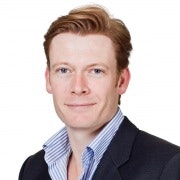Australia's fast-closing talent window
Australians have been on a bit of an overseas shopping spree recently. With our high dollar and high incomes, we've been very nice global citizens doing our bit by splurging on TVs, shoes, or all expenses paid Contiki tours.
Unfortunately, there's not a great return on investment on this consumerist rampage.
Shouldn't we be spending our hard-earned on something much more productive? After all, this mining boom won't last forever.
Ed Byrne, Vice Chancellor of Monash Univeristy, has also been on something of a spending spree himself – for talent. In the last year, Byrne has snapped up a number of Europe's leading academics: researchers who he believes will make a significant contribution to Australia's economy.
Byrne understands that Australia has a rapidly closing window – for one of the rare times in Australian history, we have a competitive advantage in the race for talent. European academics are up for grabs, that is clear, and while the US is still battling with its budget deficit we can compete for them with major American research institutions.
And it's not just academia from the developed world where we must exploit our comparative riches. We are miles ahead in our engagement with Asia. The efforts we have made in both secondary and tertiary education has delivered big dividends in attracting academics.
"We are miles ahead of our European colleagues in this, and a way ahead of most of our US colleagues, which means we have an unrivalled opportunity”, Byrne says. "The opportunity is to develop Australia as a research, innovation and clever industry base which is widely integrated with Asian economies.”
This is how America has remained at the forefront of the world economy. Well-funded research institutions that attract immigrant talent are behind a huge number of leading companies, and it's a dividend than can span generations. Sergey Brin, co-founder of Google, moved to the US when he was six – his Russian father teaches mathematics at university, his mother worked for NASA.
Byrne says we can attract that talent from Asia, but we must shift our thinking around Asia as the developing world. We must instead push for two-way ties with leading institutions there and foster research that works across countries.
This is an area where Australia lacks. Compared with other countries in the OECD, Australia has one of the lowest levels of international research collaboration. Given the increasing shift in manufacturing away from Australia and toward Asia, using academics to seed high-end collaboration here could be an antidote to our strong dollar.
It is critical that we still maintain local manufacturing, Byrne says. His researchers in engineering expect to go on placements and work with industry as part of their studies. But what happens when you can't place a graduate in clever jobs during or after their studies, he asks. "Where does it place us in terms of vulnerability when the mineral boom finally does come to an end?”
Australia needs better integration between industry and academia. We have the lowest ratio of researchers in industry in the OECD and the highest ratio in academia. For all the money pouring into our stocks and bonds from foreign sources, only 1.1 per cent goes to business. Austria by comparison receives 20 per cent of its R&D funding from abroad.
So the window is closing on Australia's ability to attract and retain talent. Byrne and his ilk can get the talent here but to keep them a strategy to put them to work beyond the PhD must be devised.
The US is coming out of its malaise, Europe will follow and top scientists will start to head toward the old-world research institutions.
Asia too its investing heavily in its science and technology and we must work quickly to put ourselves in the box seat.
Asked how long Australia has to cement these ties, Byrne has this simple warning: "It's ten minutes to midnight.”
Time to get to work.
Business Spectator will be conducting a webinar on "Reversing the brain drain" on Thursday, February 28, featuring Julia Page, the CEO of veski, a Victorian Government body that gives grants to repatriate top Australian scientists, and Professor Michael Cowley, director of the Monash Obesity and Diabetics Institute and the founder of a NASDAQ listed biotech company. Sign up to participate here https://www1.gotomeeting.com/register/947709408













